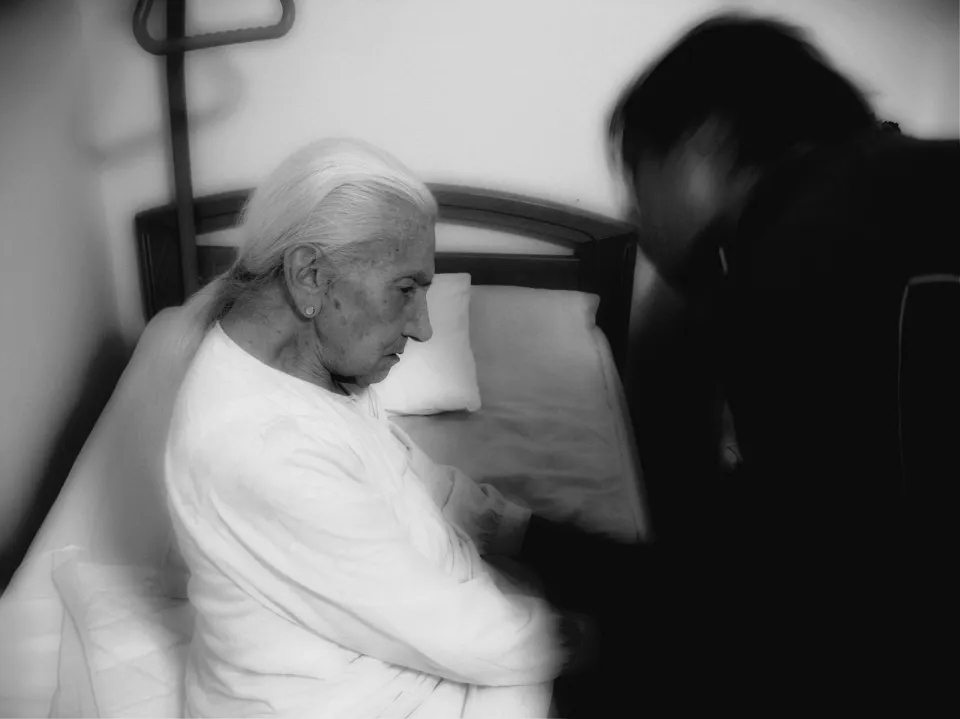One of the most prevalent infections in healthcare providers’ offices is urinary tract infections (UTI). Burning pain while urinating (peeing) or the need to urinate more frequently may come to mind when you consider UTI symptoms. These common symptoms are present in the majority of UTI patients. However, some people, such as older adults, may display less typical symptoms, such as confusion or what is known as UTI delirium.
How does UTI cause confusion? Discover the symptoms of UTI, how to diagnose it, and how to treat it.
An Overview of Urinary Tract Infections(UTI)
The urinary tract includes:
- The urethra, which is the opening that carries urine from your bladder
- The ureters
- The bladder
- The kidneys
When bacteria enter the urethra and your immune system is unable to fight them off, they may spread to the bladder and kidneys. The result is a UTI.
A study reports that UTIs were responsible for around 10.5 million doctor visits in the Americans in 2007. Since women’s urethras are shorter than men’s, they are more likely than men to develop UTIs.
How does UTI cause confusion? With age, your risk of getting a UTI rises. According to one study, more than one-third of all infections in people in nursing homes are UTIs: More than 10% of women over 65 report having one in the previous year. For women over 85, that proportion rises to almost 30%. Men also tend to experience more UTIs as they age.

Risk Factors for Urinary Tract Infections in the Elderly
Certain factors may increase the risk of UTIs in older people. Urinary retention or neurogenic bladder are conditions that are common in older adults. UTI risk is raised as a result. These conditions include Alzheimer’s disease, Parkinson’s disease, and diabetes.
They frequently demand that people wear incontinence underwear. Contamination might happen if the briefs aren’t changed frequently. Several other things put older adults at risk for developing a UTI:
- History of UTIs
- Dementia
- Catheter use
- Bladder incontinence
- Bowel incontinence
- A prolapsed bladder
How Does UTI Cause Confusion?
When you hear the word delirious, you may think of someone who is excited or mad. However, confusion is a medical condition where someone experiences confusion over a brief period of time (a few hours or days). It differs from dementia, which is a gradual deterioration in mental abilities over many months or years. Although confusion is more common in older adults and people with dementia, it can happen in anyone.
Not all signs of confusion involve confusion. Additionally, those exhibiting these symptoms may come off as hostile, reclusive, or restless. They may also have hallucinations, which involve hearing or seeing things that aren’t actually there.
Numerous factors, such as medications, anesthesia, and infections, can result in confusion. A urinary tract infection is a typical source of confusion, particularly in older adults. Actually, a UTI in an elderly person may only cause confusion. Because of this, it can be helpful to understand what to look for and what to do about it.
How Does a UTI Affect the Brain?
So how does a UTI result in confusion, confusion, or hallucinations? The condition is urological, not neurological, am I correct? UTIs and cognitive impairment may not yet be directly linked, but there is compelling evidence that suggests inflammation may play a role.
Our body’s immune system kicks into high gear to help fight off any infection we get, including a UTI. Our body releases chemicals and stress hormones during this process, which can lead to inflammation. Additionally, inflammation can cause symptoms like fatigue and fever, as well as confusion or confusion in older people. But why?
The blood-brain barrier, which shields the brain from contaminants like viruses, bacteria, and fungi, weakens with age, making it easier for inflammation and infection to interfere with the normal operation of the brain. Remember that not all UTIs cause confusion and not all UTIs cause confusion and disorientation in seniors.
Treatments: How Does UTI Cause Confusion?
After making sense of how does UTI cause confusion. It is time to find out its treatments. Antibiotics are used to treat UTIs because bacteria are the most common cause of them. Antibiotics will either kill the bacteria or stop them from proliferating. Stopping the bacteria stops the immune response to the bacteria, which should lead to improvement in confusion as well.
Confusion may still exist even after the antibiotics have finished their job. If they are a patient, the hospital staff will make every effort to keep them as quiet as possible to reduce any confusion. If the person is a harm to themselves or others because of their confusion, a low dose of sedating medication, like haloperidol (To assist in calming them down, Haldol) may be administered. But since these medications can worsen confusion, it’s a last-resort option.
Though, especially in those with dementia, not all confusion is curable. Due to the sensitivity of their brains, an infection may exacerbate dementia, even if the infection and confusion have subsided.
You may have heard of using apple cider vinegar to treat urinary tract infections, does it work? Click here for the answer.

How to Reduce the Risk of a UTI Confusion?
- Adults should only consume alcohol in moderation and should aim for six to eight glasses of fluid per day. By learning about their preferences and making drinks visible and easily accessible, you can encourage the person with dementia to drink. For this, using a glass or cup with vivid color can be helpful.
- Take care not to keep urine in the bladder for too long. Dementia patients need to be reminded to use the restroom frequently. Verify that it is easy to find the restroom. A picture-based sign on the door could be useful. Think about changing the color of the toilet seat; a white pan and a black or red seat can make it easier to see.
- For those who are less active and potentially dehydrated, monitor your fluid intake. Consider requesting a speech and language therapist’s evaluation if someone isn’t drinking enough or is having trouble swallowing. Dehydration may cause the person to pass darker, more concentrated urine which may also cause pain on urination.
Summary
How does UTI cause confusion? Although urinary tract infections (UTIs) are common infections, not everyone who has one exhibits typical UTI symptoms. Changes in the brain that occur with age may cause confusion or other symptoms in older adults with UTIs. People with UTI confusion will recover from their delirium more quickly if they receive UTI treatment as soon as possible because it will be less likely for the infection to spread throughout the body.







